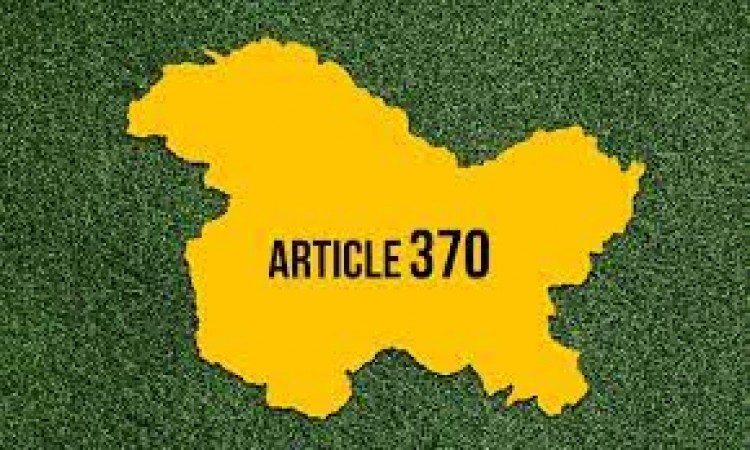
In a landmark decision that reverberated through the political corridors of India, Article 370 was revoked on August 5, 2019, altering the special status of the region of Jammu and Kashmir. This move, which had far-reaching implications, was aimed at integrating the region more closely with the rest of India. This article delves into the historical context of Article 370, its implications, and the current status of Jammu and Kashmir.
Historical Context: Genesis of Article 370
Article 370 was a provision within the Indian Constitution that granted special autonomy to the state of Jammu and Kashmir. This autonomy was a result of complex historical circumstances. In the aftermath of India's independence in 1947, the princely states were given the choice to accede to either India or Pakistan. Maharaja Hari Singh, the ruler of Jammu and Kashmir, initially hesitated to accede to either nation. However, with an invasion by tribal militias backed by Pakistan, the Maharaja sought assistance from India, eventually leading to the signing of the Instrument of Accession.
The Instrument of Accession paved the way for the inclusion of Article 370 in the Indian Constitution. This article recognized Jammu and Kashmir as a "temporary provision" and granted the state considerable autonomy in various aspects, including its constitution, flag, and laws, except for matters related to foreign affairs, defense, and communications. This autonomy was intended to be a temporary arrangement, but it remained in place for decades, leading to a distinct political identity for the region.
Implications of Article 370
The special status granted by Article 370 had significant implications for Jammu and Kashmir. It fostered a sense of separate identity and autonomy, which some argued protected the unique culture and traditions of the region. However, it also created political and administrative challenges, hindering the integration of the state with the rest of India. Critics of Article 370 pointed out that it hindered economic development and perpetuated a sense of separatism.
The provision also led to the bifurcation of the state into Jammu and Kashmir (with a Muslim majority) and Ladakh (with a Buddhist majority). This division had its own set of challenges and disparities, with each region having distinct concerns and aspirations.
Revocation of Article 370
On August 5, 2019, the Indian government, led by Prime Minister Narendra Modi, took a bold step by abrogating Article 370. This move was accompanied by a communication blackout, deployment of additional troops, and the detention of political leaders in the region. The government argued that the revocation would lead to greater integration of Jammu and Kashmir with the rest of India, paving the way for development and growth.
The decision was met with mixed reactions. While supporters lauded it as a step towards equal rights and opportunities for the people of Jammu and Kashmir, critics expressed concerns about the manner in which the decision was implemented and its potential to exacerbate tensions in the region.
Current Status and Aftermath
In the aftermath of Article 370's revocation, Jammu and Kashmir underwent significant changes. The state was reorganized into two separate Union Territories: Jammu and Kashmir, and Ladakh. This administrative reorganization was aimed at better governance and development.
The region experienced a gradual restoration of communication and a phased release of detained political leaders. However, the security situation remained a concern, with periodic restrictions on internet access and movement to prevent potential unrest. The revocation also led to heightened international attention, particularly from neighboring Pakistan, which condemned the move and raised the issue on various international platforms.
Challenges and Prospects
The revocation of Article 370 posed both challenges and opportunities for Jammu and Kashmir. On one hand, it opened the door for economic development, investment, and the extension of central government welfare schemes to the region. On the other hand, concerns remained about safeguarding the region's identity, addressing the aspirations of its people, and managing any potential tensions arising from the decision. The revocation of Article 370 marked a historic shift in the political landscape of Jammu and Kashmir. The move, which aimed to integrate the region more closely with the rest of India, had both supporters and critics. While it opened the door for potential development and growth, challenges pertaining to security, identity, and regional aspirations remained. As the region navigates the aftermath of this monumental decision, it stands at a crossroads, poised to redefine its future within the broader framework of the Indian nation.
The Genius of Babubhai Mestry in Indian Filmmaking
Delhiites panic over the flood threat: Yamuna crosses the danger mark once again.
Many veterans, including PM Modi, paid tribute on the death anniversary of Atal Bihari Vajpayee.